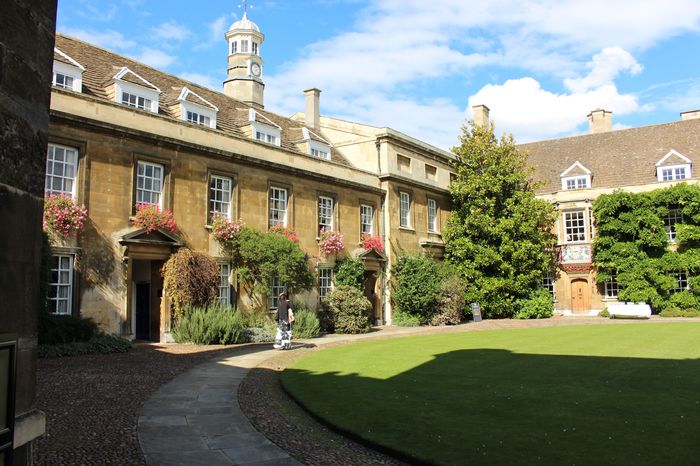Lecture recording to be non-mandatory, says new guidance
The Cambridge SU Disabled Students’ Officer has branded the University’s new guidance on lecture recordings ‘incredibly disappointing’ following its decision not to make lecture recording mandatory

The Cambridge Centre for Teaching and Learning has released new guidance on the recording of teaching for the academic year 2023-24, stating that lecture recordings should be a “supplement to, rather than a substitute for, the in-person lecture experience”.
The guidance concludes by saying that the decision of whether to record a teaching event will rest with each lecturer.
The guidance highlights that Cambridge students “value the flexibility that recordings offer, particularly where they may be prevented from attending due to ill health, timetable clashes, or other short-term life events.”
It adds that lecture recordings help students to “feel more on top of their studying and in control of their learning, thus reducing anxiety.”
The guidance also notes that recordings are particularly effective in supporting disabled students, as well as students who are “traditionally disadvantaged,” such as “those who may require additional transitional support to study, have caring or employment commitments, those with barriers of cost or travel to access their education, and those with English as a second language.”
Each course will publish a statement outlining its approach to teaching and learning before the beginning of the academic year, which will include a policy on lecture recordings, the Pro-Vice-Chancellor for Education, Bhaskar Vira, told Varsity. This statement will “highlight the availability of recordings,” outlining “how pedagogical structure or local adaptations might be expected to interact with recordings, who may access them, and how,” said Vira.
Ell Gardner-Thomas, Cambridge SU’s Disabled Students’ Officer, expressed their disappointment in the new guidance. The new rules represent a “continued failure to recognise that universal lecture capture is best practice for inclusive, accessible and responsive learning,” they told Varsity.
According to Gardner-Thomas, the lack of universal lecture recordings “will have detrimental effects on students in both academic and personal wellbeing.”
“All students lose out when lectures aren’t recorded,” Gardner-Thomas stressed.
They added that the issue of non-universal recording is “particularly acute for those already struggling within the university such as those with English as a second Language, those with caring commitments and Disabled students.”
Whilst the university’s guidance requires “disabled students in receipt of individual adjustments must be accommodated appropriately,” it does not appear to require provisions for other disadvantaged students.
The guidance also acknowledges that “more than 40% of Cambridge students registered with [the Accessibility and Disability Resource Centre] had not disclosed a disability prior to matriculation”.
Responding to this, Gardner-Thomas said: “The requirement of a Student Support document entitling [students] to recordings also continues to put the burden on Disabled students who don’t always have a diagnosis, which widens the gap for those already marginalised within the university community”.
Gardner-Thomas continued: “While we welcome the university’s guidance to provide recordings for those who require it as a reasonable adjustment, this expectation has consistently not been met across the university.
“We will continue to campaign for universal mandatory lecture capture across subjects to ensure equitable access to learning for all students”.
“Lecture recordings are highly valued by students as a part of their educational experience,” Pro-Vice-Chancellor Vira told Varsity. “However,” he continued, “not all teaching activities will be suitable for recording, particularly those with highly-interactive, or sensitive content”.
“As noted in our guidance statement, recordings can be more beneficial for some types of students than others; they can also be more effective for some types of teaching than others. This variance means that a one-size-fits-all model – whether that model is universal recording or universally not recording – is not appropriate,” Vira said.
“Alternative and equally effective adjustments” will be put in place for disabled students if a session is not recorded. Regarding students without formal diagnoses of disabilities, alternatives to recordings “can be provided in a limited way for students with a disability to ameliorate their disadvantage,” said Vira.
“The ADRC [Accessibility and Disability Resource Centre] is working closely with faculties and departments to support their educational provision and to ensure that we monitor the ways in which students’ needs are being effectively met,” Vira concluded.
 News / Cambridge academics stand out in King’s 2026 Honours List2 January 2026
News / Cambridge academics stand out in King’s 2026 Honours List2 January 2026 Interviews / You don’t need to peak at Cambridge, says Robin Harding31 December 2025
Interviews / You don’t need to peak at Cambridge, says Robin Harding31 December 2025 Comment / What happened to men at Cambridge?31 December 2025
Comment / What happened to men at Cambridge?31 December 2025 Features / “It’s a momentary expression of rage”: reforming democracy from Cambridge4 January 2026
Features / “It’s a momentary expression of rage”: reforming democracy from Cambridge4 January 2026 News / Varsity’s biggest stories of 202531 December 2025
News / Varsity’s biggest stories of 202531 December 2025










